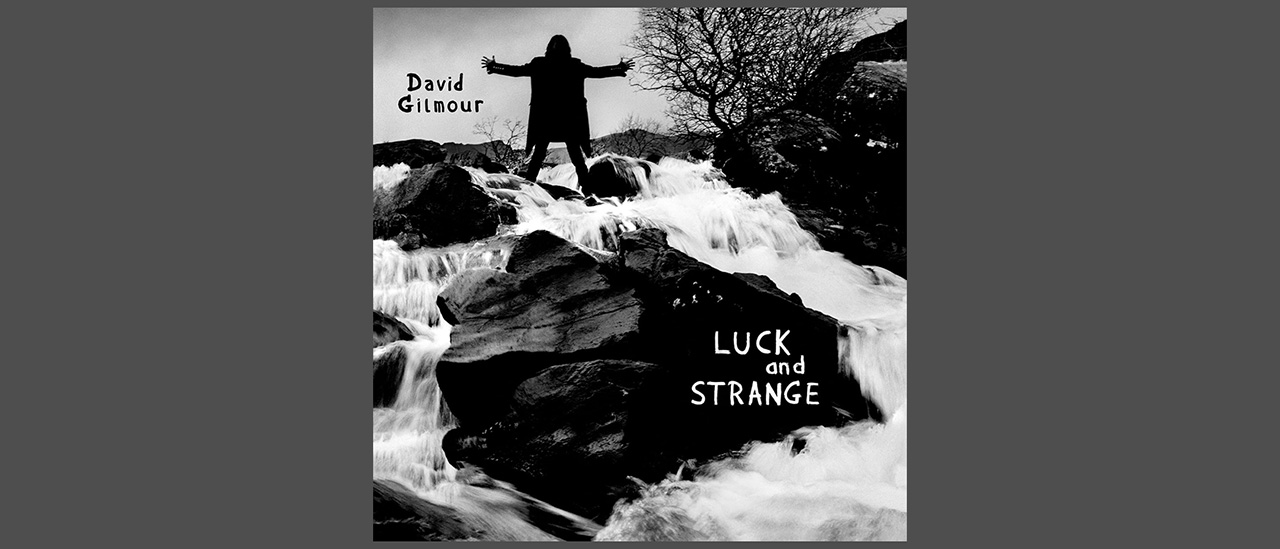One of the great ironies of the solo album is that, in reality, you’d expect any musician to step away from their day job to explore new ground. Why bother otherwise? You might as well make another ‘band’ album. But there’s the catch: most fans just want more of the same.
And what if you’re largely responsible for the sound of one of the biggest bands in the world anyway, as David Gilmour arguably is? It stands to reason that your own music will retain certain trademarks, even if you decide to release a reggae album. Is it not just the same old, same old?
Well, first up, Gilmour hasn’t released a reggae album. Luck And Strange is named for “the luck of a very strange moment with so many positive ideas that me and baby-boomers in the post-war wold have had.” And it’s very much a David Gilmour album. That guitar tone, those solos, both dreamy and daring; and that voice, calming and comfortable, though never numb, are very much in place.
And yet it’s also a David Gilmour album with a difference. Much has been made of youthful producer Charlie Andrew, whose CV boasts indie rockers Alt-J, Wolf Alice and Marika Hackman. Tackling Gilmour without prior knowledge, and therefore no real awe, he brings a new approach to the album’s sound. “He came and listened to a demo or two,” Gilmour has commented. “And he was like, ‘Well, why does there have to be a guitar solo there? And do they all fade out? Can’t some of them just end?’ He has a wonderful lack of knowledge of, and respect for, my past.”
Before panic sets in, be assured one can trace a linear path through all of his solo albums from 1978’s self-titled debut through, 46 years later, to Luck And Strange. Production-wise it sounds crisp and relevant, without losing any of the core values listeners expect from a Gilmour record. And there’s plenty of those guitar solos to savour.
So, musically, how does Luck And Strange stack up? There are no excursions into French-styled jazz, for starters. Three singles have been released so far, and they give a pretty good representation of the sound: a guitar-led adult rock album, with some progressive flourishes, that muses on life and mortality. It’s hardly mawkish fare, however. In more recent portraits of Gilmour one can spot a steely glint in his eye, and despite the subject matter, he’s hardly feeling sorry for himself here.
You’d expect a David Gilmour album to open with an instrumental – both On An Island and Rattle That Lock did – and so does Luck And Strange, although the dreamy Black Cat is just half the length of its predecessors, before the slow-building groove of the title track takes hold.
Richard Wright’s appearance on electric piano and Hammond, taken from a 2007 jam at Gilmour’s Brighton barn following the On An Island tour, will delight Floyd fans. It adds a touch of moist-eyed nostalgia – but only a touch, mind! Equally enjoyable are the ever-building guitar strokes that begin to colour the album. It’s the same with first single The Piper’s Call, which follows a similar slow-build; and yet, as layers of sound evolve, so the guitar playing grows, climaxing with one of the finest solos on the album.
Our plan is to get this one out and then do another… I will be working with all these people again
David Gilmour
Chances are that very few Prog readers knew of UK dream pop duo The Montgolfier Brothers until Gilmour chose to cover their 1999 single Between Two Points, but it’s a wonderfully relaxed version of a lovely tune, lit up by the wonderful voice of Gilmour’s daughter Romany – who shines across Luck And Strange, be it with her harmonious backing vocals or beautifully understated harp-playing on the shimmeringly short instrumental Vita Brevis.
As one would expect, the spotlight is largely centred on the man with the guitar. And he doesn’t disappoint, whether he’s unleashing heavier-than-expected guitar fury on the seedy Dark And Velvet Nights or slipping into more reflective mode on the sweetly melodic Sings that follows it, while the epic Comfortably Numb-esque strains of Scattered ends the album on a wonderful high note.
The folk-like bonus track Yes, I Have Ghosts, again with Romany’s voice and harp in evidence, is an absolute gem of a track too, possibly deserving of inclusion on the album proper.
Gilmour has stated: “Our plan is just to get this one out and run it and then do another one straight away. I will be working with all these people again.” As a fan, you always hope there’ll be more from your favourite artists, but, as the theme of this album explores, time doesn’t always work that way. Luck And Strange would stand as a fitting epitaph to his not inconsiderable talent. It’s a delight of an album.
Luck And Strange is on sale now in multiple formats via Sony.




